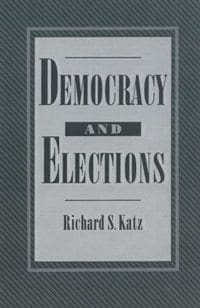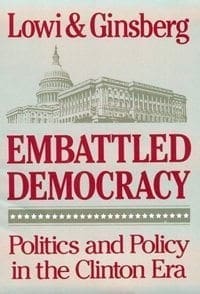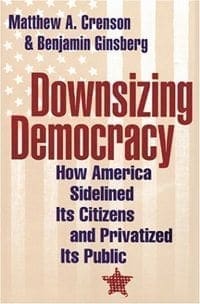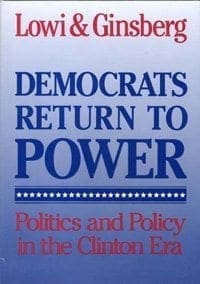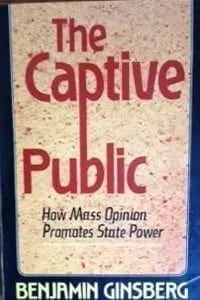This book addresses the relationship between four values of democratic theory–popular sovereignty, liberalism, personal development, and community–and the electoral institutions used to implement them. After a chapter sketching the electoral […]
What are the basic concepts of executive organization and management? How does executive organization affect management? How can executive organization and management be improved? In Making Government Manageable, Thomas H. Stanton […]
In Downsizing Democracy, Matthew A. Crenson and Benjamin Ginsberg describe how the once powerful idea of a collective citizenry has given way to a concept of personal, autonomous democracy. Today, political […]
In this provocative book, Benjamin Ginsberg examines the cycle of Jewish success and anti-Semitic attack throughout the history of the Diaspora, with a concentrated focus on the “special case” of […]
First published in 1993, this title explores the underlying ideologies and decision-making procedures that codify the rules of the post-World War II liberal, now defunct Soviet socialist, mercantilist and South […]
By examining Third World leaders who switched alignment from one superpower to the other, the author demonstrates inadequacies of existing theories of alignment and realignment and develops an alternative theory […]
This text provides an analysis of the variety of consequences that elections may have for the operation of American political institutions and the formulation and administration of policy.
